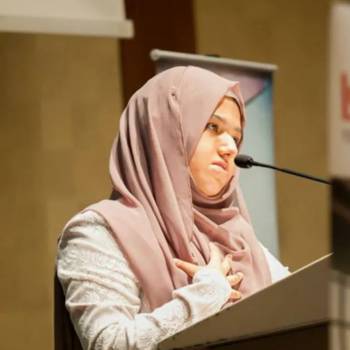Sadaqah—the giving of charity—is a huge component of Islam that is considered a voluntary charitable act juxtaposed to the obligatory charitable act of Zakat.
There are some believers—such as the poor, disabled that are unemployed, those in debt, and imprisoned—that are exempted from Zakat. This exemption is a form of mercy from Allah (SWT). It is a means to accommodate believers that may otherwise not have the possibility to fulfill the obligatory component of Zakat.
It is, however, a natural need to want to give back to the community. It is natural to want to give a helping hand to anyone that may be going through a difficulty, regardless of going through a difficulty ourselves. Believers that are exempted from Zakat still have the option to give back Sadaqah which is voluntary charity. The nature of Sadaqah being voluntary means that we do not have to give a required amount, but any amount that is manageable to our individual circumstance.
It is usually assumed that Sadaqah only has a monetary component to it as a form of charity, but Sadaqah includes any form of charitable act that is done for Allah (SWT) to help His creation. This can include any form of good deed that helps a fellow human being whether it is buying a meal for someone that cannot afford one, or even giving a smile to your fellow brother.
Prophet (peace be upon him) did say that,
“Smiling in your brother’s face is an act of charity”
(At-Tirmidhi; Declared Authentic by Al-Albani).
All humans have the ability to try to lift someone up whether it is through a smile, kind gesture, or word. All humans are, therefore, able to give sadaqah no matter the severity of their circumstance. The main component for every believer is trying to be there for fellow human beings in a way that is possible.
Sadaqah in Islam is, therefore, a form of mercy not only for the benefactors but the one trying to give back.
It is a means for every believer to be part of giving back.
There is also the component of Sadaqah Jariyah in Islam which means long-term voluntary charity.
Sadaqah Jariyah is a charitable act that has long-term beneficial impacts such as water from contributing to build a well. A long-term charitable act can also include imparting knowledge by either giving an individual beneficial knowledge to pass on or sponsoring one’s education. It can also be planting a tree or crops as there are beneficial means—not only for humans but also the planet—years to come.
Sadaqah Jariyah is a means to give back by leaving something behind.
It is a means to sustain and build.
It could be building an establishment such as hospitals, schools, or even building a legacy.
Children of believers are also considered a form of Sadaqah Jariyah and believers can choose to give in dedication of any Muslim that passed away, so that they, too, can attain the good deeds that is accumulated through the long-lasting charitable act.
Sadaqah Jariyah opens ways of possibilities, as it is not only a means of cultivating our communities, but a chance for us to form our legacies in a way that we can manage.
It could motivate an individual to study in order to impart knowledge to someone else that could later pass it on for generations to come.
It could even motivate one to write a book.
We all have the ability to learn and we all have the ability to give back.
It does not have to be in the grandest of ways through monetary means, but something that could give a ripple and more lasting impact even if it is through a joint contribution.
Sadaqah Jariyah is thus a form of mercy—it is a motivating means to build our legacies, so that our environment, communities, and our loved ones that have passed as believers could also benefit from its mercy.
Writer by-line: Sa’diyya Nesar is the author of ‘Strength from Within,’ TEDx speaker, and poet that lives life with physical disabilities.
 Sa'ddiya Nesar
Sa'ddiya Nesar 






Maryam Hamza